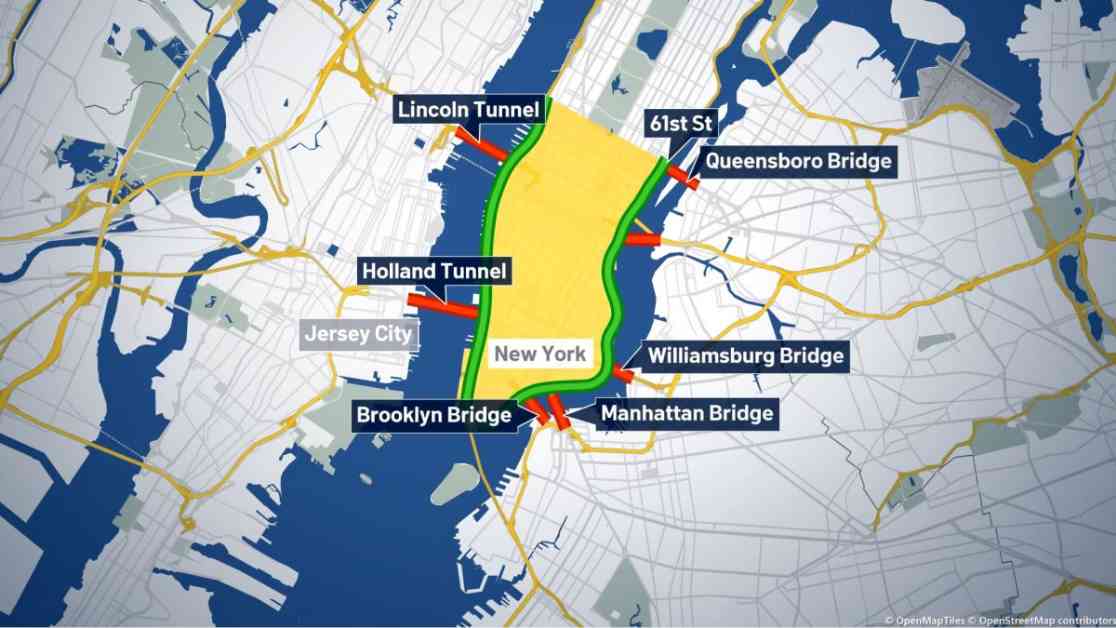NYC Congestion Pricing: What You Need to Know Before Sunday
New York City is gearing up for a significant change in its transportation landscape as congestion pricing is set to roll out this Sunday, marking a milestone in the city’s efforts to address gridlock and pollution. After years of challenges and debates, Gov. Kathy Hochul has reaffirmed the state’s commitment to implementing this new system to curb traffic congestion and generate revenue for public transit.
Understanding Congestion Pricing: A Breakdown
If you’re planning to drive into Manhattan after January 5, here’s what you need to know. The congestion pricing toll will be applicable to the most congested area south of Central Park, targeting peak traffic hours from 5 a.m. to 9 p.m. on weekdays and 9 a.m. to 9 p.m. on weekends. During these times, most vehicles with an E-ZPass will be charged $9 per day, while overnight tolls will be reduced to $2.25. Drivers without an E-ZPass will face higher fees, with peak hours costing $13.50 and overnight charges at $3.30.
Motorcyclists will pay half the amount of cars during peak hours, while buses and trucks will have varying toll rates based on their size. However, certain vehicles and individuals, such as emergency vehicles, school buses, people with disabilities, and low-income drivers, may be exempt from these charges or eligible for discounts.
The Impact on Taxis, Ubers, and For-Hire Vehicles
Passengers using taxis, Ubers, and other for-hire vehicles will also experience changes, with a per-trip surcharge being added for rides within the Congestion Relief Zone. This surcharge will be 75 cents for taxis, green cabs, and black cars, and $1.50 for Uber or Lyft passengers.
A Global Perspective on Congestion Pricing
While congestion pricing may be new to New York City, it has been successfully implemented in other major cities worldwide, including London, Stockholm, Milan, and Singapore. The concept has been in discussion in New York for over a decade, facing opposition and legal hurdles along the way. However, advocates argue that reducing private vehicle use in favor of public transportation will not only alleviate traffic congestion but also contribute to environmental conservation and support the city’s extensive transit network.
As New Yorkers prepare for this significant change in their daily commute, the implementation of congestion pricing represents a pivotal moment in the city’s transportation history. With its potential to transform the way people travel and interact with the urban environment, this initiative reflects a broader shift towards sustainable and efficient transportation systems.


